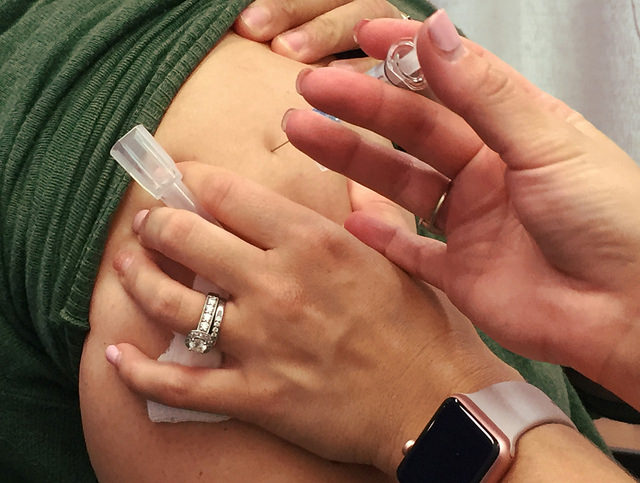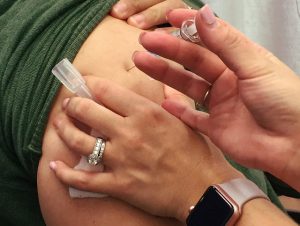
As the summer holidays come to an end, the NHS in Leeds is reminding parents and students to make sure they’re prepared for the health challenges that a new term can bring by knowing how to get appropriate advice, making sure all vaccinations are up to date and having a well-stocked medicine cabinet.
The start of a new term often exposes young children especially to a range of new bugs. Good hand hygiene can help prevent the spread of germs, but if children do fall ill, local pharmacies can advise on how to treat common ailments such as coughs, colds, upset stomachs and chicken pox. Most minor illnesses are caused by viruses and will soon clear up on their own so it’s usually not necessary to see a GP, but if parents are concerned, they should talk to their pharmacist or call NHS 111 for advice. If your child is prescribed medication, please make sure you follow the instructions carefully.
This year, measles is a particular concern as cases continue to rise in Yorkshire and have hit record levels across Europe. Public Health England is concerned that as people return from holiday and start back to school, college and university, cases will increase even more. As measles is highly contagious and has very serious, potentially life threatening complications, it’s vital that vaccinations are fully up to date.

Registering with a GP is essential for anyone going away to university, but especially for anyone taking regular medication. Before they go, students should also make sure they are vaccinated against meningitis, which poses a particular health risk for students, as well as Human Papilloma Virus (HPV), a sexually transmitted infection that is linked to some cancers.
Whether you’re a parent or a student moving away from home for the first time, it’s important to have a range of over the counter treatments at hand to treat minor illnesses and ailments. These should include:
- Paracetamol and ibuprofen, and equivalent syrups for children
- Mild laxatives to relieve constipation
- Re-hydration mixtures for diarrhoea or vomiting
- Indigestion remedy
- Tweezers and sharp scissors to remove splinters or cut bandages
- A thermometer to check for fever
- A range of bandages, plasters (various sizes), non-absorbent cotton wool, elastic bandages and dressings
- Antiseptic to clean cuts before they’re dressed (bandaged) and most can treat a range of conditions including insect stings, ulcers and pimples.
Dr Gordon Sinclair, GP at Burton Croft Surgery in Headingley and Clinical Chair at NHS Leeds CCG, said:
“The start of a new school or university term can be a worrying time for parents, not least because children and young people seem to pick up everything that’s going around.
“Simple coughs, colds or upset stomachs can be treated at home with over the counter remedies – your local pharmacist can tell you what you need and help you decide if you need to book a nurse or GP appointment.
“Parents and young people can help prevent more serious illnesses by making sure vaccinations are fully up to date. I’d also recommend having young children immunised against the flu virus before winter, especially those with asthma.
“And finally, if your child is leaving home for the first time, make sure they have what they need to deal with minor ailments and that they know how to access health services, should they need them. This includes knowing about NHS 111 and the NHS website – www.nhs.uk – which includes a range of health information and advice.”


